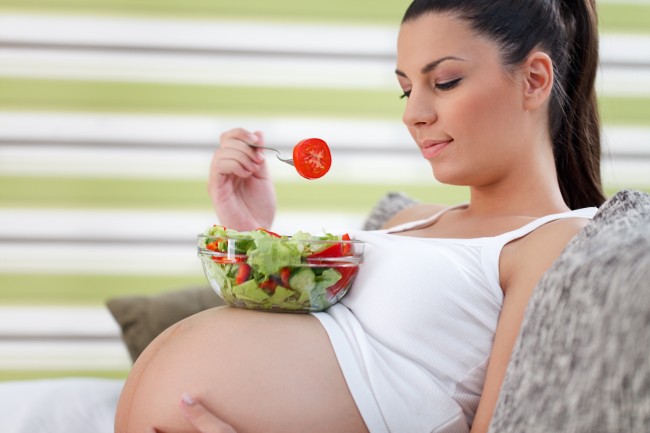Child nutritionist (paediatric diaetician) and Pampers®Institute expert Claire McHugh helps to bust the common myths and provides some guidance on healthy choices for you and your developing baby.
Myth one: Eating for two
Truth: We’ve all heard this myth. While it’s true that your nutritional needs increase and you require extra nutrients like calcium and iron while you are pregnant, this does not mean that you should be eating double portions. You don’t need unnecessary calories; eat smarter and choose nutrient dense like lean proteins, fruit and vegetables and wholegrains that give your unborn baby a strong, healthy start.
Myth two: Take it easy
Truth: Often pregnant women believe that this means relaxing and putting their feet up for the duration of the pregnancy. If you are used to exercising, it is okay to stay active during your pregnancy and to continue a regular exercise routine. Not only is this a healthier option, exercise also helps you feel better, fix any pregnancy aches you may have, and best of all, shortens your labour time and helps you get back in shape after your baby is born. Still, always check with your doctor that your exercise programme is safe and doesn’t subject the baby to any unwanted danger.
Myth three: Any kind of food is fine during pregnancy
Truth: Endless, crazy cravings are a given and are probably harmless unless like many pregnant women, you give in to cravings and eat far more food than is usually healthy for you. Try to limit your intake of sugary foods such as chocolate, cookies, and sweets by reducing the amount you eat when you are craving these types of foods.
Myth four: You shouldn’t eat fish during your pregnancy
Truth: Not all fish is bad for you during your pregnancy. Fish provides high-quality protein, is low in fat, and contains Omega-3 fatty acids,and other essential nutrients. The Omega-3 fatty acids in fish play a role in your baby’s brain and eye development. Certain fish that contains high levels of mercury can be harmful to your baby, but during your pregnancy you can eat fish and seafood such as hake, sardines, salmon, canned tuna and trout, which are low in mercury.
Myth five: Meat is important
Truth: When pregnant you need as much iron and protein you can get and one of the ways to make sure you eat enough iron is to include meat in your diet. However, if you are a vegetarian you can supplement meat with other forms of iron and protein sources such as legumes and pulses (lentils and beans). You may want to talk to your gynaecologist or a nutritionist to make sure that your baby is getting enough of these nutrients and to get suggestions on the kinds of foods you can eat.
For more information on Pampers, visit http://www.pampers.co.za/orhttps://www.facebook.com/Pampers
Latest posts by Contributor (see all)
- Adjust to life with your newborn using these tips - July 10, 2014
- 10 tips for preparing for IVF - July 10, 2014
- Video: Make homemade play dough for your baby’s development - July 9, 2014
-
No Comments" href="https://all4baby.co.za/uncategorized/476/essential-vitamins-minerals-pregnancy/">

Stock up on these vitamin rich foods during pregnancy
-
No Comments" href="https://all4baby.co.za/newborns-0-6-months/birth-defects/439/new-project-launched-prevent-fetal-alcohol-syndrome/">

New project launched to prevent Fetal Alcohol Syndrome


 Saving...
Saving...